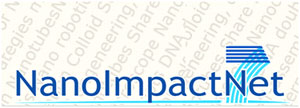
More and more information on the release, exposure and possible toxicological effects of nano-objects is being produced. The understanding of fundamental and general aspects in these different research fields is steadily increasing.
The main aim of this workshop is to bring together experts in these different research fields to build a bridge from exposure to health effects for manufactured nanomaterials. The discussions will start with a presentation of the state of the art and of our future needs and will move onto cover all the relevant aspects bridging the fields of release and exposure with toxicological studies.
There is no registration fee for academic participants, but attendees will need to cover their own travel, accommodation and food. A limited number of travel grants will be available. Non-academics will be charged a fee of EUR 200 per day for the course and materials.
The workshop is aimed academic researchers with interests in nanomaterial exposure and health effects. Specifically people with interests in bridging different research areas from release to dose, from exposure to toxicology. We would also welcome are other researchers and experts from industry, government agencies or civil society organisations, etc., interested in the training school’s topics. Priority will however be given academic researchers.
The workshop is part of the EU FP7 funded NanoImpactNet and take place at King’s College London on 17th and 18th October 2011. To register your interest in the workshop please go to NanoImpactNet
Item date 06/07/2011
Follow Us
Our newsletter
 Privacy Notice Summary:
Privacy Notice Summary:
- Who this is for: You must be at least 13 years old to use this service.
- What we collect: We store your email address
- Who we share it with: We use "Campaign Monitor" to store it, and do not share it with anyone else.
- More Info: You can see our full privacy notice here
AirMail newsletter
The latest news and research from ERG: View the archive

